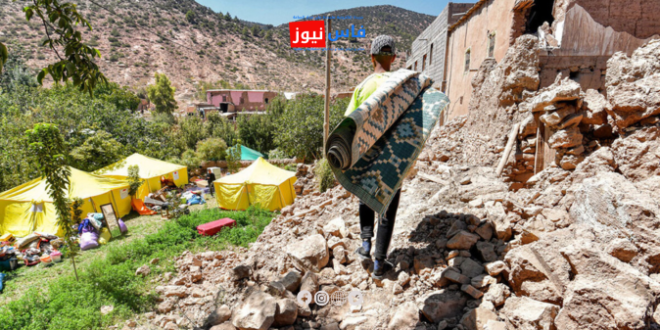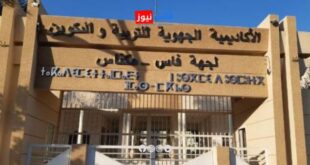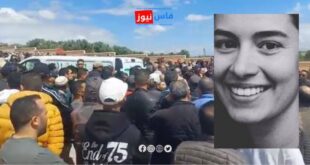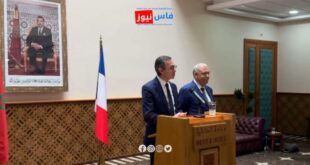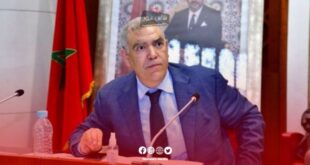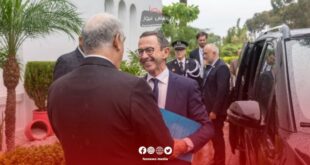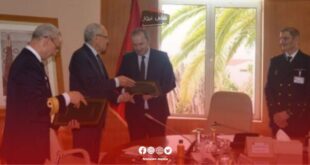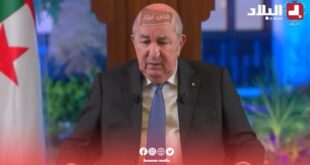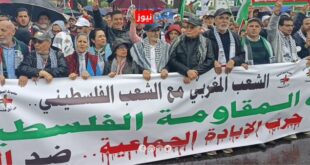The parliamentary group of the Party of Progress and Socialism (PPS) in the House of Representatives has called for the establishment of an inquiry commission regarding the delayed execution of the reconstruction and rehabilitation program for areas affected by the Al Haouz earthquake, which has been allocated a budget of 120 billion dirhams (MMDH).
In response to the precarious living conditions of the Al Haouz earthquake victims, the PPS parliamentary group has requested the formation of a parliamentary inquiry mission to evaluate the progress of reconstruction, housing, and rehabilitation operations in the affected areas.
The reconstruction program, estimated to cost 120 billion dirhams, is facing obstacles that severely impact the lives of affected families, some of whom are still living in tents in the midst of winter.
This first-of-its-kind temporary parliamentary inquiry mission aims to analyze “the progress of housing, reconstruction, and rehabilitation operations in the affected areas.” It will notably question several ministries responsible for reconstruction about their efforts, particularly regarding the acceleration of the process.
Program Details
The government has already unveiled details of the general program for reconstruction and rehabilitation of areas affected by the Al Haouz earthquake, estimated to cost 120 billion dirhams. “This program aims to improve the living conditions of 4.2 million people in six provinces: Al Haouz, Marrakech, Chichaoua, Taroudant, Ouarzazate, and Azilal, over a five-year period from 2024 to 2028,” the group specified in its request.
Referring to the implementation status of the program’s axes for the 2024 fiscal year, it appears that total expenditures have not yet reached 9 billion dirhams, highlighting program delays, funding difficulties, and the impact of these obstacles on the lives of many affected families, some of whom still live in difficult conditions.
The proposed temporary information mission aims to obtain answers to a series of questions and concerns and to draft a report on this matter. According to a technical sheet submitted by the PPS group to the House of Representatives to the President of the Finance and Economic Development Commission, the commission plans to meet dozens of officials, including the Director General of the Greater Atlas Development Agency, the Ministry of Interior and decentralized services in earthquake-affected areas, the Ministry of Economy and Finance, the Ministry of National Education, the Health Department, the Department of Territorial Planning, Urban Planning, Housing, as well as some local authorities in affected areas.
The objectives set for the inquiry commission include:
- Evaluating compliance with governance criteria, speed, efficiency, listening to the population, and respecting the environmental, cultural, heritage, and architectural specificities of the region, in accordance with royal instructions;
- Examining the stages of reconstruction, housing, rehabilitation efforts, and difficulties encountered;
- Assessing the implementation of infrastructure plans and axes and the revival of the local economy;
- Examining measures taken to develop the redefinition plan and the supply of construction materials;
- Analyzing the management of difficult weather conditions for affected families, especially those still living in tents;
- Studying the distribution methods of direct aid to affected families;
- Analyzing the methods of census of the disaster victims and obtaining aid for reconstruction and housing;
- Assessing the state of schools (human resources, classrooms, equipment, etc.) in earthquake-affected areas;
- Assessing the state of local hospitals (medical and paramedical staff, medical equipment, etc.) in earthquake-affected areas;
- Evaluating the progress of sectoral projects that have been undertaken and analyzing the management and monitoring of significant psychological effects on children, and their crucial need for intensive psychological follow-up.
Urgent Calls
Civil associations have launched urgent appeals to the state to “provide decent housing alternatives to tents for the victims of the September 8 tragedy,” and to open an independent investigation to hold those responsible for delays in reconstruction operations accountable.
Numerous reports have highlighted that “the tents available for the disaster victims are not sufficient to face the climatic challenges imposed by the region’s relief, especially during winter, where rains are accompanied by heavy snowfall in the mountain heights.”
The region, for which the state announced a reconstruction program at the beginning of the tragedy, is experiencing dysfunctions according to testimonies from disaster victims and independent reports, mainly concerning the “distribution of compensations, support for construction, rising prices of construction materials, and difficult living conditions in tents.”
Second Winter in Tents
In early December, the government announced that “57,786 households received support of 20,000 dirhams, as a first installment for the reconstruction and rehabilitation of their homes, totally or partially damaged by the earthquake.” It also emphasized that “35,983 households benefited from the second installment, 25,754 households from the third installment, and 12,664 households from the fourth and final installment, for a total amount of nearly 2.7 billion dirhams.”
Mohamed Dich, national coordinator of the Civil Coalition for the Mountain (CCM), stated that “this second winter for the disaster victims is accompanied by great disappointment on their part, and they are intensifying their protests.” He also indicated that a number of disaster victims are still in tents and only wish to “protect themselves from the cold during this period,” calling for “making the provision of cold and snow-resistant housing solutions an urgent priority during this period.”
 فاس نيوز ميديا جريدة الكترونية جهوية تعنى بشؤون و أخبار جهة فاس مكناس – متجددة على مدار الساعة
فاس نيوز ميديا جريدة الكترونية جهوية تعنى بشؤون و أخبار جهة فاس مكناس – متجددة على مدار الساعة

